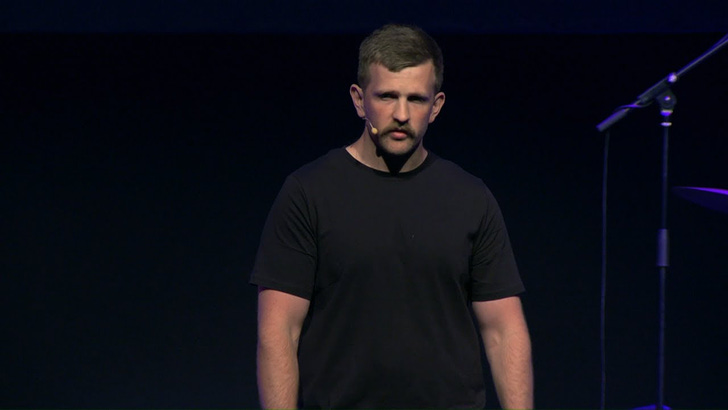Story telling.
No - not asking my wife to read me bedtime stories as I fall asleep.
The best thing I’ve done for my mental health has been through piecing together my struggles through story telling.
At first, it was writing on a shallower level when R4R started, but at the time it felt monumental. I only shared little bits about my own struggles and made it more about my Dad’s, but I felt vulnerable.
And when nothing bad happened, and I illuminated a little bit about myself, I felt empowered to dig further.
I wrote more, exploring my struggle further, and as I made sense of it all, I became more comfortable with it all.
Then came the opportunities to tell my story verbally. First, there was a simple chronological recount of what had happened in front of a camera. Then came a talk in front of a hundred or so people.
There is magic in speaking to people. It seems to unlock some sort of emotional release or accountability to your emotions that speaking to a camera doesn’t.
Whether it be a dinner with close friends or a catch-up with your family, preparing to tell them your story will help tease out what is and isn’t worth worrying about, and telling them will validate it and help move you forward.
Whatever you’re going through, the path to recovery will be different to the next person. But I promise you, an ideal recovery for everyone will comprehending your struggle enough to tell it as a story.
Why it works
Putting your thoughts down on paper or ordering them in your mind helps you to comprehend them, and when you comprehend your struggles it’s easier to see potential solutions or mitigations.
This is where Post Traumatic Growth can occur, which allows you to reframe what you’ve experienced in a way that facilitates growth rather than just pain.
It also stops ruminating as once you’ve put your thought down or spoken it out, it gives you an opportunity to end the thought and move on. And for me, it proves that whatever I’m worrying about isn’t actually that scary.
Are there any other ways that story telling can help with mental health.
Where to start
If you’re not sure how to start writing, jot down the dot points of what you’ve been through in chronological order. It will help order things and prepare them to be expanded upon if you feel like doing so.
And if you’d like to share your story or start building towards it, please get in touch at run4resilience@gmail.com. Sharing your story might help you, but it can also be a blue print for someone else.
What to be careful of
Revisiting your struggle in any capacity can be hard - Be prepared for that and consider using professional guidance. In any case, using a shrink to help you piece together parts of the puzzle can help you comprehend your struggle better… so it’s probably a good idea regardless.




This is such a great read! Thank you.
Just. Keep. Writing.